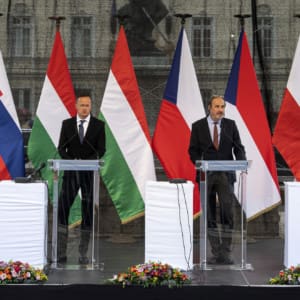I am not a traditionalist. I know and like the old Latin Mass (also called the Tridentine Mass), but I participate in the modern Mass. Therefore, one could say that this issue does not affect me – but this would be untrue.
If the Pope can change the lives of hundreds of thousands of Catholics in the world and strip them of what was given to them by his predecessor with one arbitrary, kneejerk decision, then this decision and others like it can affect anyone at any moment. If reactionary decisions can be committed against one faithful tradition, then why would not it be so in the case of others?
The papacy’s powers are not unlimited and are not so free that they are not submitted to evaluation. It cannot be that the Pope may do anything he wants – nor should he.
The emotions, piety, and faith of Catholics are also important. Authority is not just pure violence and must also contain love.
The introduction of these latest restrictions does not have that love.
If there is a place for the deep enculturation of Amazonian rites in the Church and if there is a place for African rites, then why would there not be a place for the Tridentine rite?
I write this, although I am aware that many traditionalist Catholics have fallen into a sectarian mentality and have harshly criticized not only Francis, but also his predecessors, and have rejected the teachings of the Second Vatican Council and the lawfulness of the new Mass.
This is a serious issue, but despite what the supporters of the new restrictions think, the limits will not change much. Traditionalist environments will remain in the Church, while radical, unfriendly, apathetic decisions towards them will only radicalize them further.
Sectarian mentality is not healed by power plays which force people out of the Church. This is a way to strengthen certain tendencies, not weaken them. The history of the Church in the last few decades shows clearly that those faithful to the old rites cannot be excluded. They were, are, and will be present and, surprisingly, many among them are youths. Even if their reconstructionist tendencies may be irritating, the cure is not exclusion but proper formation.
Another question is how this decision pertains to Francis’s constant calls for diversity and patient waiting for decentralization. These restrictions are a negation of those calls. If there is a place for the deep enculturation of Amazonian rites in the Church and if there is a place for African rites, then why would there not be a place for the Tridentine rite?
If we are meant to patiently build unity in doctrine and theological diversity, then why not accept the diversity of rites?
Such decisions create the feeling that the theology of decentralization mainly concerns deep modernization and not actual processes of accepting diversity in the Church.
This should be a cause for worry for more conservative Catholics.






